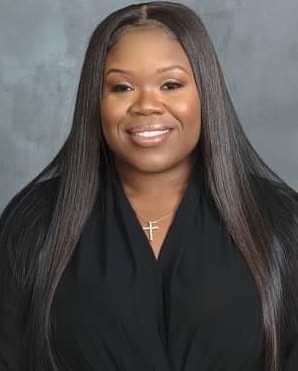Purchasing a home is one of the largest financial investments for anyone to make. For first time buyers, the stress of the process can settle in even before finding a forever home. As questions swirl about the process, realtors are available to help navigate the roads and bridge the gap between financial literacy and homebuying.
The rise in inflation caused in part by the pandemic is driving the cost of homes upward. As the cost of homes rise, finding an affordable home without compromising on amenities remains a top priority. Recent studies conducted by CoreLogic show millennials are dominating the first-time buyers’ market. In 2020 and 2021, millennials accounted for 51 percent of all purchase applications. This, coupled with fewer homes available, is creating stiff competition for buyers.
“The state of the market is great. Interest rates are still low compared to two years ago. Housing prices have [gone] up allowing sellers to get the most for their property. Housing Inventory is low, but buyers looking to buy this winter are having good luck with their offers,” said Danielle Dunham who has been recognized in 2021 as Detroit’s Favorite Realtor and Realtor of the Year.

Danielle Dunham, realtor
Knowing how to financially prepare for the journey to homeownership can help buyers prepare for all necessary paperwork and unexpected costs. One aspect buyer should prepare for are closing costs. Closing costs consist of several fees paid to the mortgage lender for services rendered during the process. On average, closing cost can range from three to six percent of the cost of the home according to Rocket Mortgage. Potential buyers are not always prepared for closing costs and may cause a hiccup towards the end of the process.
“Buyers underestimate closing costs. It is separate from [the] down payment. Your closing cost is comprised of fees related to the origination and underwriting of a mortgage loan, taxes, insurance premiums, as well as title and record fees,” said Dunham.
Closing costs can be tricky as they vary from home to home. Location is one factor that will dictate the final costs of purchasing a home. Closing costs can be paid out of pocket in one lump sum or included into the loan, should the lender permit. However, this will cause interest to be applied to the closing costs.
“I think most people think that it is the same across the board for any house at the same price point. Closing cost depends on other things besides price. Taxes, lender fees, title work and insurance are rolled into your closing cost,” said Dunham. “For instance, a house in one city for $250,000 may have $2,000 in yearly taxes. A house in a different city for the same price may have $5,000 a year in taxes. The same thing with insurance.”
Though fees can quickly add up, first time buyers are at an advantage. There are many programs offered that will help to mitigate the cost of home buying.
“First time buyers financial costs depend on what price point they are buying in. Costs that are typical with home buying are inspection and appraisal fees, which range from $300 to $500 for inspection and $500 to $600 for appraisal. Price depends on the square footage of the house,” said Dunham. “The great thing about being a first-time buyer is all the down payment assistance for people located in Michigan who are purchasing a home. This can drastically cut the cost of homeownership in half.”
Credit history plays a major role in approvals and denials of mortgage applications as well as interest rates. This will also affect the type of loan available. There are three standard loan avenues and each has its own requirements on credit scores. Conventional loans are best utilized by those with good to excellent credit scores. With qualifications set by Fannie Mae and Freddie Mac, conventional loans are not offered by any government entities, but backed by private lenders. FHA loans are issued by the Federal Housing Administration and VA loans are provided to active military personnel and veterans through the U.S. Department of Veteran Affairs. Since the federal government backs these loan types, requirements vary from that of a conventional loan and allow for lower credit scores.
“A decent score to start at is 620. Some lenders start at 580, but those loans typically have higher interest rates,” said Dunham.
The 2022 housing market is expected to heat up as the year rolls along. For those interested in throwing their hat into the ring in the new year, saving and working towards your financial goal will help in the long run.
“I am a firm believer of setting aside money automatically each paycheck or month towards your goal,” said Dunham. “It is better to have more than enough than not enough money.”